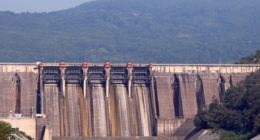The onset of devolution a decade ago marked a significant turning point for the northern region of Kenya. However, the area still grapples with the severe impacts of climate change, which continue to erode livelihoods and cause significant human distress.
Leaders and governors from this region were among the attendees at the recent COP28 climate summit in Dubai. At this global event, substantial financial commitments were made, promising billions of dollars in aid to lower-income nations to address the losses and damages resulting from climate change.
It is now the responsibility of the region’s leaders to creatively prepare and position Northern Kenya to capitalize on these opportunities and interventions that aim to address climate-related challenges. The populace faces daily struggles, including food scarcity, malnutrition, erratic weather patterns ranging from droughts to destructive rains, reliance on unsustainable energy sources, as well as issues of security and unemployment.
A key focus is the transition to sustainable energy sources to reduce the growing carbon footprint. Current reliance on diesel-powered mini-grids only worsens the environmental crisis. Regional leaders must advocate for green, affordable, renewable, and sustainable mini-grid solutions.
Another vital consideration is harnessing the region’s youthful and skilled workforce. The involvement of young people in climate discussions is crucial. Local governments should integrate youth and youth-led initiatives in strategies to combat climate change, with job creation being central to engaging young people in the region’s economic development. The migration of youth from rural to urban areas, leaving the elderly behind, impacts agricultural productivity and rural growth prospects.
Gender inclusion in climate discussions is also essential. Women’s participation in wealth creation and climate discourse needs to be encouraged and facilitated.
Northern Kenya is rich in natural resources, with a largely untapped potential in the extractive industry. Any exploitation of these resources must be sustainable and considerate of the environmental impact. Engaging local communities transparently and inclusively is crucial to ensure their benefit from these initiatives without intensifying climate risks.
Rainwater harvesting and agricultural interventions, such as building dams, should be prioritized to enhance food security and provide water during prolonged droughts for both people and livestock.
Addressing insecurity, a significant threat to the region, is imperative. The widespread presence of small arms and illegal firearms has rendered many areas unproductive. A concerted effort to resolve inter-communal conflicts and disarm civilians is necessary.
Through these measures, Northern Kenya’s leaders can prepare the region to access and effectively utilize the funds pledged at COP28, turning them into tangible benefits for the community.










